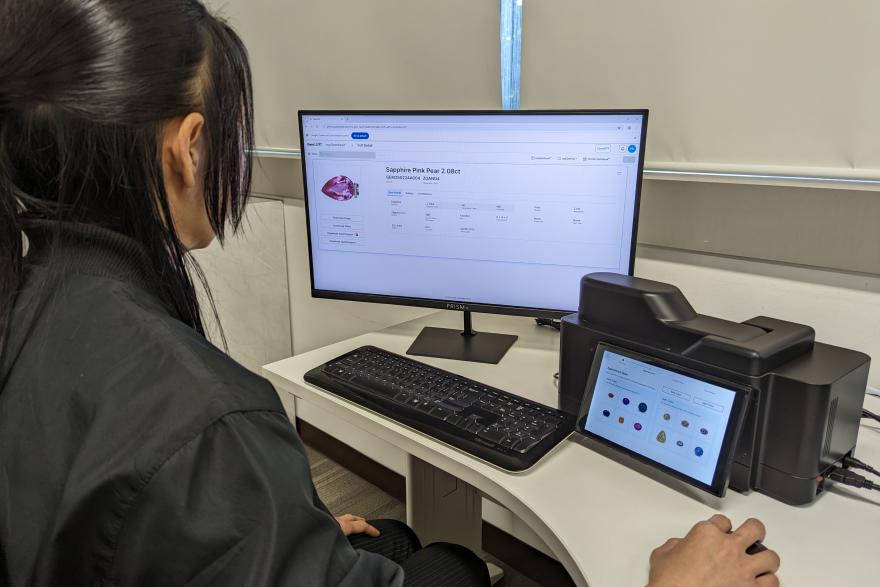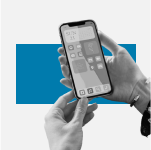[SINGAPORE] Singapore-based Porolis Technologies has developed a way to modernise how coloured gemstones are graded, authenticated and tracked.
The company’s GemLUX eco-system combines artificial intelligence (AI), blockchain technology and photomicrography – the process of taking highly detailed photographs through a microscope – to deliver faster, more consistent and affordable gemstone assessments.
A device called Kroma
At the centre of the system is Kroma, a portable device that specialises in scanning coloured precious gemstones such as sapphire, ruby, emerald, spinel, chrysoberyl and tanzanite species in various lighting and optical configurations.
It captures high-resolution images showing the gemstone’s colour, structure, and microscopic inclusions; these images are then analysed by Porolis’ cloud-based AI service, trained on a large dataset labelled by professional gemmologists, to identify key properties that impact valuation.
The problem at hand was that gemstone certification is often expensive, slow and heavily dependent on human judgment. Certification from well-known labs can cost between US$20 and US$300, and even more with shipping and insurance costs.
Porolis offers a quicker, more affordable alternative. The Kroma device replaces the need for multiple handheld tools traditionally used in gem labs, such as polariscopes and refractometers, and provides objective results through AI analysis.
One of Porolis’ major innovations is its method for creating a digital “fingerprint” of each gemstone. This fingerprint is based on the natural microscopic inclusions inside the gemstone – features that are unique to each stone.
Using this information, Porolis generates a unique identity for each gemstone and records it on a blockchain. This makes it possible to track a gemstone’s full journey from mine to market, helping to prevent fraud and build trust in the trade.
The system is designed to support small-scale miners, who produce about 80 per cent of the world’s coloured gemstones but often struggle to get fair prices due to a lack of certification access.
By making gemstone grading more accessible and transparent, Porolis hopes to help these miners sell their stones more fairly, and at the same time help governments capture more accurate data on gemstone production to reduce smuggling and tax evasion.
Making the technology accessible
Porolis is also promoting a more sustainable business model. Instead of only selling devices, it plans to set up experience outlets where users can access gemstone scanning and certification services without having to own the equipment. The first outlet is scheduled to open in Sri Lanka in March 2025. This shared-access model reduces material waste and makes it easier for more people to benefit from the technology.
The Kroma device itself is compact, measuring just 32 cm by 18 cm by 20 cm, and has been designed for ease of use. It features an intuitive touchscreen interface to guide users through the scanning and submission process, making it suitable even for users with little or no technical background in gemology.
Porolis is also working on further developments, such as adding Raman laser capabilities for chemical analysis through prototypes. These new versions are expected to provide even deeper analysis of gemstones, including detecting treatments that may affect a stone’s value.
By combining modern technologies such as AI, cloud computing, and blockchain, Porolis offers a new approach to an industry that has long relied on manual methods. Its system aims to create a more standardised, efficient, and transparent gemstone trade, benefiting miners, traders and consumers alike.
Porolis believes that technology can help level the playing field in gemstone trading and bring more accountability to the supply chain. Its platform could mark a major step forward in how gemstones are graded, sold and trusted around the world.



